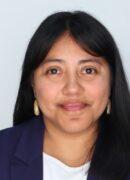Course Information
| Session |
|---|
| Credits | 1.5 CEUs or 15 PDHs |
|---|
$250.00
Dates: July 6 - August 2Credits: 1.5 CEUs or 15 PDHs
The United States Census Bureau projects that by 2044, more than half of the American population will be a member of a minority group. Much like the United States population, higher education demographics are also projected to change dramatically, with the percentages of enrolled African American and Hispanic students expected to increase at a greater rate than that of Whites and Asian Americans by 2022.
For the library profession, which has historically struggled with developing a workforce that is reflective of the communities being served, these changing times will require cultural competence, defined by the Association of College and Research libraries as “a congruent set of behaviors, attitudes, and policies that enable a person or group to work effectively in cross-cultural situations” (ACRL, 2012). While cultural competence has become a part of some library and information science programs, for librarians currently working in the field, cultural competence may be an enigma.
This course will introduce librarians to the concept of cultural competence in the library and information science profession. Specifically it will assist attendees to:
This course can be taken as one of four courses needed to earn our Certificate in Diversity and Inclusion Skills, but can be taken as a stand-alone course as well.
The United States Census Bureau projects that by 2044, more than half of the American population will be a member of a minority group. Much like the United States population, higher education demographics are also projected to change dramatically, with the percentages of enrolled African American and Hispanic students expected to increase at a greater rate than that of Whites and Asian Americans by 2022.
For the library profession, which has historically struggled with developing a workforce that is reflective of the communities being served, these changing times will require cultural competence, defined by the Association of College and Research libraries as “a congruent set of behaviors, attitudes, and policies that enable a person or group to work effectively in cross-cultural situations” (ACRL, 2012). While cultural competence has become a part of some library and information science programs, for librarians currently working in the field, cultural competence may be an enigma.
This course will introduce librarians to the concept of cultural competence in the library and information science profession. Specifically it will assist attendees to:
This course can be taken as one of four courses needed to earn our Certificate in Diversity and Inclusion Skills, but can be taken as a stand-alone course as well.
 Lisa Cruces is an independent consultant specializing in academic libraries, archives, and organizational development. Previously, Cruces has held positions at the Harry Ransom Center, University of Notre Dame, the University of Houston, and Texas State University, as well as advisory roles for non-institutional community archives and BIPOC collectives. Cruces completed her master of science in Information Studies at the University of Texas at Austin with a focus in archives and special collections and is currently pursuing her MBA in Human Resource Management at Texas State University. Her research focuses on assessing diversity, equity, inclusion, and accessibility in academia and workplace settings.
Lisa Cruces is an independent consultant specializing in academic libraries, archives, and organizational development. Previously, Cruces has held positions at the Harry Ransom Center, University of Notre Dame, the University of Houston, and Texas State University, as well as advisory roles for non-institutional community archives and BIPOC collectives. Cruces completed her master of science in Information Studies at the University of Texas at Austin with a focus in archives and special collections and is currently pursuing her MBA in Human Resource Management at Texas State University. Her research focuses on assessing diversity, equity, inclusion, and accessibility in academia and workplace settings.
Reviews
There are no reviews yet.